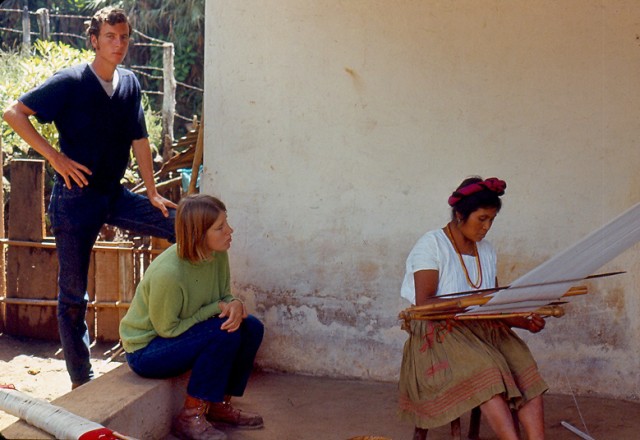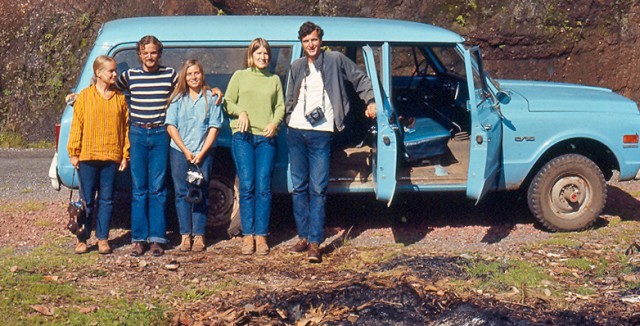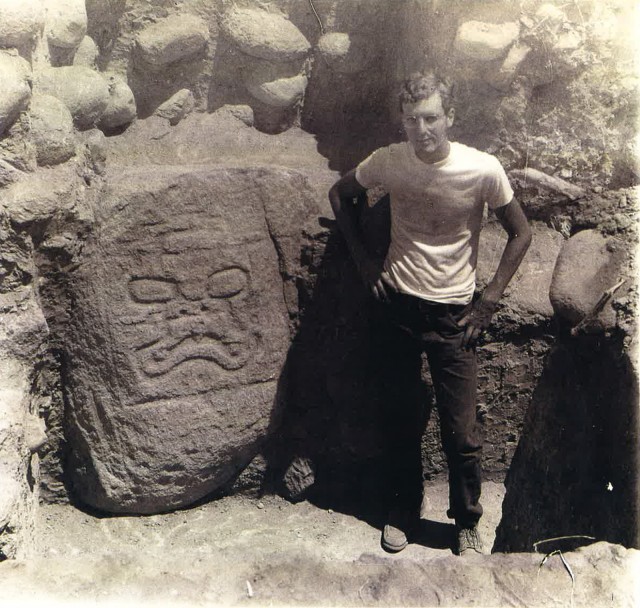- Home
- >
- Preservation Archaeology Blog
- >
- The Reluctant Archaeologist and Archaeology as a G...
Between now and October 17, 2015, Archaeology Southwest is participating in the Archaeological Institute of America’s celebration of International Archaeology Day (10/17/15) by sharing blog posts about why—or how—we became archaeologists. We hope you enjoy this very personal look at our staff members and the experiences that changed their lives forever. We begin with our founder, president, and CEO, Bill Doelle:
(October 9, 2015)—Even in high school, I was interested in the social sciences. But not archaeology. In a high school sociology class there was a brief discussion about archaeology. I had the impression it was all about “digging up bones,” and I wasn’t the least bit interested.
Three years later at the University of Michigan, I was an anthropology major planning my coursework so that I could graduate. I was required to take one archaeology course. So, I found a two-credit course in Mesoamerican archaeology. It was my gateway to a Bachelor’s degree.
It was also an amazing course! It was taught by Jeffrey Parsons. He had incredible slides of Mexico and Guatemala, and he put the rise of civilization into an environmental and demographic context that I found fascinating. As I was walking out of class one day, I overheard a classmate asking Jeff Parsons about opportunities to volunteer on projects. The very next class, I waited in line to ask the same question. I got three or four names and went off to write letters.

The details are dim, but within a month I was accepted by William Sanders, Jeff Parsons’ own mentor, to join the Kaminaljuyu Project in Guatemala City. OK! Archaeology was providing a gateway into Latin America. I was certain that I wanted to work as a cultural anthropologist there, but didn’t know how to get started. This might work.
As a volunteer, I was treated much better than the students who were there as part of a field school. I was assigned to the Valley Survey project and was soon walking through the corn fields of peasant farmers, polishing my Spanish so I could explain why I was there and what I was looking for, and having the most amazing time of my life. And on weekends, a group of six or seven of us were able to use one of the project “carryalls”—today known as “Suburbans”—to venture off into the highlands of Guatemala. Archaeology was actually working as a very direct gateway to the cultural anthropology that I was convinced I wanted to pursue.

After my summer in Guatemala, I was “less averse” to archaeology, but my target was still cultural anthropology. I did sign up for a Museum Studies class and got to work on the analysis of flaked stone from an early Mesoamerican village, but I was also taking advanced Spanish and multiple cultural anthropology classes. And then I graduated! What the heck was next?
Well, Jeff Parsons and some of the other archaeologists that I had met gave me more names of archaeologists to write to. And one of those letters led to a job offer from Gareth Lowe of the New World Archaeological Foundation based in Chiapas, the Mexican state that borders Guatemala. It was not exactly a lucrative job—room, board, and $100 per month. But it sounded great—the gateway was still working.
While working for Gareth Lowe, I was supposed to be part of a massive salvage archaeology project prior to construction of a new dam. The project was delayed, so I was sent to assist a Master’s student who was working on the Chiapas coast. We lived in a rented house in the small town of Tonolá. I got to excavate in a platform mound site, and toward the end of our work, a remarkable Olmec face carved on a large flat boulder was revealed at the base of the stairs that once ascended the mound. That was pretty amazing.

I was also impressed to see the impact of this discovery on the small town. The stones were re-located to their central plaza. And, while living in our small rented house, a Guatemalan archaeologist joined us while he worked in the local area for several weeks. Hearing his stories every evening, both of life in Guatemala and politics in Guatemala, slowly eroded my resistance to archaeology. Until then, archaeology seemed to lack the relevance of cultural anthropology. But Carlos was an activist in his country and an archaeologist.
And one evening, when I heard Carlos say in Spanish: “La arqueología es me passión!” [Archaeology is my passion!], it finally hit me. I could acknowledge that archaeology was becoming “my passion.” Soon, archaeology became the gateway to graduate school and a career. And archaeology is still very much my passion.
One thought on “The Reluctant Archaeologist and Archaeology as a Gateway”
Comments are closed.

I never knew! Thanks for sharing your history and your passion. You are certainly as passionate about archaeology as anyone I have ever met!